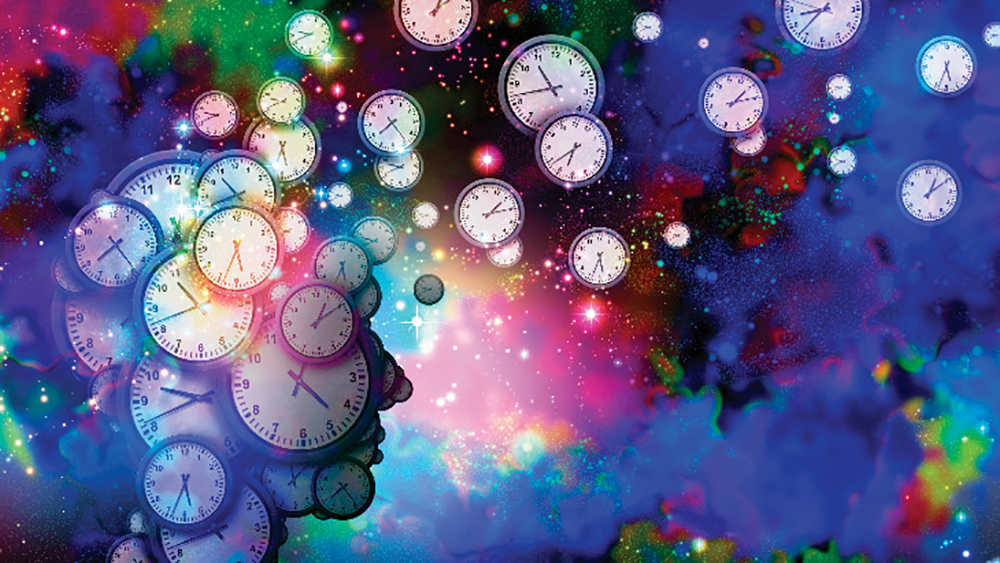
Positive news is very rare these days. We are bogged down in what sometimes feels like an unwinnable conflict, without any easy or apparent solutions. We have renewed our just battle in defense of our homeland, yet much of the world remains vehemently opposed to our right to breathe. Whatever euphoria we felt in the early stages of the war, has been replaced by frustration and despair. When and how will all this end?
Last week, we received a glimmer of positive news but, as with everything else about this war, it was bittersweet. We recovered the bodies of four hostages, even as 129 people remain in dreadful captivity exposed to unimaginable suffering. The recovery of the bodies provided relief, achievement and some degree of triumph.
On a purely emotional level, the return of the bodies offers closure for families who have lived through a nightmarish mixture of doubt, dread and unresolved trauma. Discovering the fate of family members, even when the news is tragic, and bringing victims to proper burial in Israel, hopefully, allows families who have endured so much anguish to gradually move on from the agony of uncertainty.
There is an additional victory in recovering bodies of the victims of this massacre. Our subhuman enemies are waging psychological warfare against us. In not providing signs of life, not reporting on the conditions of hostages, and not allowing international bodies to visit, these cold-blooded psychopaths are manipulating our emotions, preying upon our fears and anxieties and fomenting political dissent. By recovering the bodies of even a few of the hostages, we prevent these monsters from dishonoring the dead by manipulating the living. Having suffered enough, the victims can be brought to burial, where they can rest in peace without their memory being weaponized.
Beyond the emotional and political significance of these operations, there is an important ideological value in the recovery of bodies. Our valiant efforts to retrieve the bodies of victims exemplifies the respect we demonstrate to human beings, even after they have died. Our soldiers risked their lives to recover bodies and, in some instances, to retrieve body parts. Scores of silent heroes exposed themselves to horrific images which will forever haunt their imaginations, to help identify innocent victims who were murdered in life and desecrated again in death. Many state funerals were conducted for soldiers whose full remains have yet to be retrieved.
All this dedication reflects a core value of our tradition known as tzelem elokim or the divine image of Man. Belief in tzelem elokim isn’t just a moral value but a foundational aspect of our belief in God. Respect for other human beings is based on four fundamentals of Jewish faith. It took humanity close to 5,000 years to appreciate the divine-like dignity of Man and to structure societies which preserve that dignity. Our enemies are trying to obliterate this religious accomplishment. We will not allow them to.
From One Came Many
Ancient Man could not imagine One creator responsible for all the diversity and dichotomy of our world. The god of fire could not possibly be the god of water, just as the god of evil must be a different being than the god of good. Avraham was the first to espouse belief in One God and about 2,000 years later, humanity finally comprehended that from One comes many. With this discovery, the first foundation of monotheism settled into the world’s religious consciousness.
Still, humanity struggled to comprehend that the One God is also separate and different from the rest of His creation. Nature was too large and the universe too overwhelming for there to be a God who was “above and beyond” the system. With the maturing of monotheism came the understanding that God isn’t physical; He exists beyond Nature and is fundamentally unlike any part of our own reality.
Belief in a One God, who is also different from Nature, yields the doctrine of tzelem elokim. The One God who is different from His universe conferred His “differentness” upon one distinctive creature. Similar to God, human beings are different from the natural order. Our differentness from Nature expresses itself in our creativity, free will, consciousness, emotions and other human faculties which animals do not possess. Recognizing and respecting the divine-like “differentness” of Man affirms belief that God Himself, the One Creator, is also different. Belief in the dignity of Man, is an affirmation of the basics of religious belief.
This notion regarding the dignity of Man only fully blossomed a little more than 600 years ago, during the Renaissance period, which ignited dramatic improvement in almost every sector of the human condition. Initially, the Renaissance movement was founded upon a religious belief in Man as the divine masterpiece, possessing unique potential and worthy of shaping his own destiny. Through his divinely endowed free will and intellectual inquiry, Man is capable of improving his world. This belief in Man inspired the birth of democracy, the emergence of capitalism, the scientific revolution and the drive toward universal education. Our modern world is a spiritual outcome of the Renaissance and its unshakeable and religiously-based belief in the dignity of every human being.
Body and Soul
There is a fourth element which underlies the Jewish tradition of tzelem elokim. Judaism never endorsed dualism and never divided the world into two opposing forces or principles. We bless God for success and for suffering. Similarly, there is no division between our physical bodies and our eternal spiritual souls. Sin isn’t solely a product of our bodily desires but of an integrated human being who disobeys divine instruction. Both our spiritual souls and our physical bodies possess divine image. Just as our souls, our bodies are “different” and graced by God.
For this reason, we treat the body with respect and sensitivity even after the soul has departed from it. Even though life has departed, the body is respected since it once cradled life and once radiated with divine majesty. This is why the Torah does not allow a criminal who was executed by the courts to be hung for an extended period. The inevitable bodily decomposition is disrespectful to God who conferred dignity upon that body. This is also why we don’t delay in burying the dead.
The Slippery Slope
We now face a repulsive culture which indiscriminately rapes and murders and then violates dead bodies. Though they speak in the name of religion, they are religious impostors. Dehumanization of human beings and defilement of human bodies is religious heresy. Poisoned by hatred and infected by murder, this culture has completely abandoned the core beliefs of religion.
Once human dignity is desecrated, a culture slithers down a very slippery religious slope. Without dignity, Man isn’t much different from the beasts of the jungle. If Man isn’t different from Nature, perhaps God himself isn’t different. By extension, if God is like Nature, perhaps He is “many” just as Nature is many. By defacing human bodies, these religious frauds corrupt the core values of religion which took humanity thousands of years to assemble.
The concept of the dignity of Man helped humanity evolve from a savage world of violence and anarchy into a civilization of dignity and progress. Islamic terrorists threaten to return us to the cruelty and barbarism of that confused and chaotic world. The care and attention we pay to the bodies of victims defends the dignity of Man and the sanity of our modern world.
As always, we defend what is just and moral. We defend humanity against its own demons. They just don’t get it.
The writer is a rabbi at Yeshivat Har Etzion/Gush, a hesder yeshiva, with semicha from Yeshiva University and a Mastersin English literature from the City University of New York. He is the author of “Dark Clouds Above, Faith Below” (Kodesh Press), which provides religious responses to Oct. 7.













